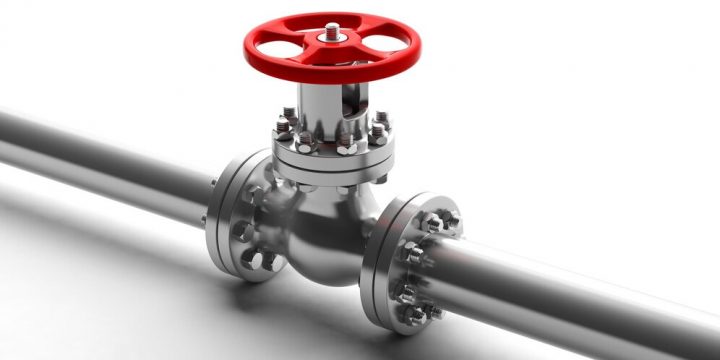Control valves are crucial elements in industrial systems, playing a significant role in managing the flow, pressure, temperature, and level of fluids. These versatile devices are used across various industries, including oil and gas, petrochemical, power generation, water treatment, pharmaceuticals, and food processing. By accurately regulating the movement of different media—such as liquids, gases, and steam—control valves ensure the efficient and safe operation of systems.
What Are Control Valves?
Control valves are mechanical devices that adjust the flow rate of a fluid by altering the size of the flow path. This adjustment is usually controlled by the movement of a valve element, often operated by an external actuator, which can be pneumatic, electric, or hydraulic. Control valves respond to control signals, enabling automation and precise regulation of processes.
Types of Control Valves
- Globe Valves: Globe valves are known for their excellent throttling abilities and are commonly used in applications that require precise flow control. They are suitable for managing both liquid and gas flows.
- Butterfly Valves: These valves are lightweight and economical, making them ideal for controlling large-volume flows. They are frequently used in water treatment systems, HVAC applications, and industrial processes.
- Ball Valves: Ball valves are characterized by their robust sealing capabilities and are perfect for on/off control applications. They are widely used in the oil and gas sector due to their durability and quick operation.
- Diaphragm Valves: Diaphragm valves are excellent for handling corrosive fluids, offering superior isolation between the fluid and the valve mechanism. They are often used in hygienic and sterile applications.
Key Considerations for Choosing Control Valves
Selecting the appropriate control valve involves several important factors to ensure optimal performance:
- Material Compatibility: The valve material must be suitable for the type of fluid it will manage. Common materials include stainless steel, carbon steel, and specialized alloys.
- Actuation Method: The choice between pneumatic, electric, or hydraulic actuators depends on the specific control requirements and available power sources.
- Flow Characteristics: Understanding how the valve position affects flow rate is essential for selecting a valve with the right flow characteristics.
- Pressure and Temperature Ratings: The valve must be capable of handling the maximum pressure and temperature conditions of the process.
Advantages of Using Control Valves
- Improved Process Efficiency: Control valves allow for precise control over fluid flow, enhancing process efficiency and product quality.
- Safety and Reliability: They help maintain optimal operating conditions, protecting equipment and ensuring the safety of personnel.
- Cost Efficiency: Proper selection and maintenance of control valves can lead to reduced energy consumption and maintenance costs, offering significant long-term savings.
Leading Control Valve Providers
Enggpro provides a comprehensive directory of top control valve manufacturers and suppliers for industries seeking reliable solutions. Whether you’re located in India, the USA, the Middle East, Canada, or other Asian regions, Enggpro connects you with trusted providers offering high-quality control valves. From globe valves to ball valves, find the best products tailored to your specific industrial requirements.
Discover Enggpro’s curated list of control valve manufacturers and suppliers today. Ensure your industrial processes operate efficiently and safely with the right control valve solutions. Trust in the expertise and innovation of industry leaders to optimize your operations and achieve exceptional performance.



